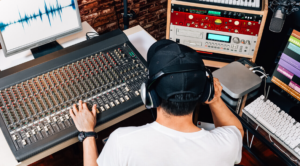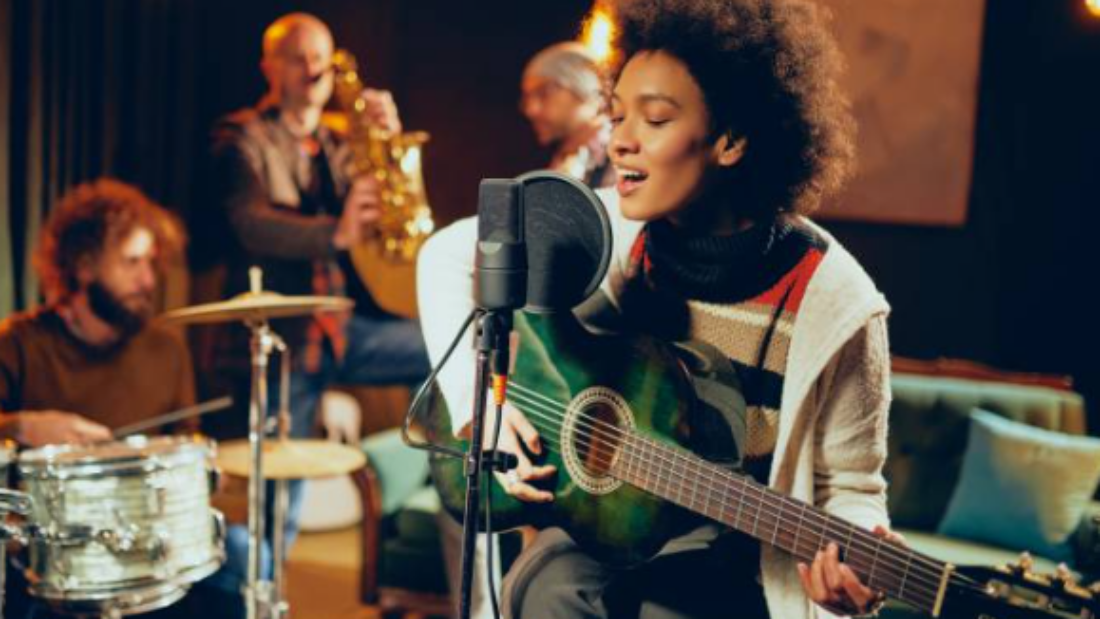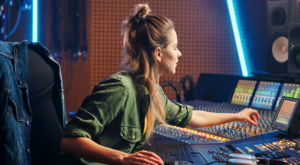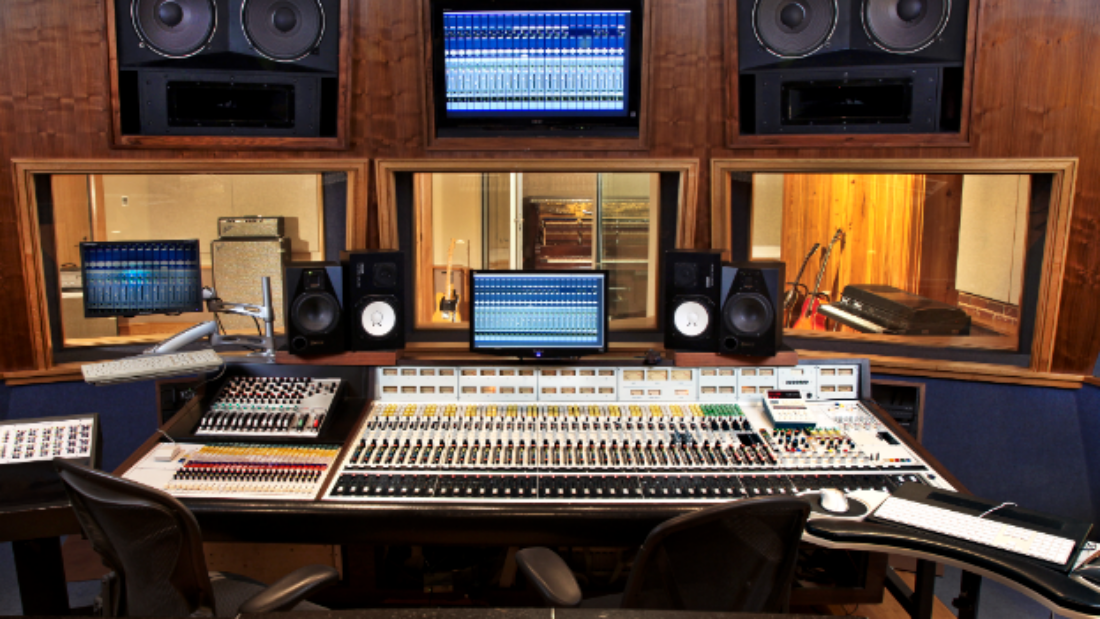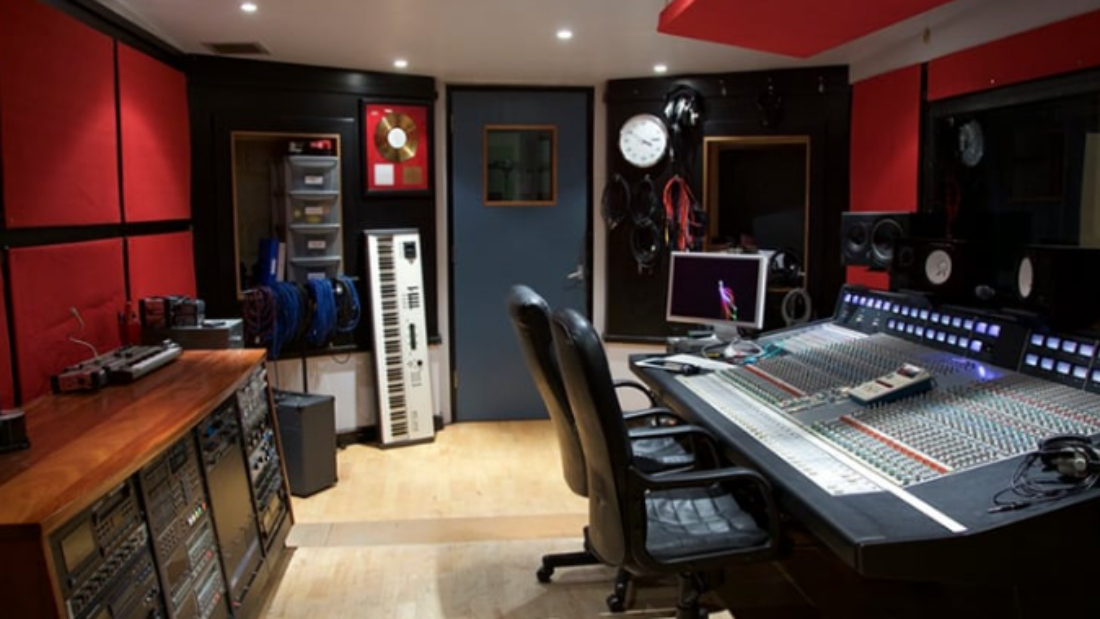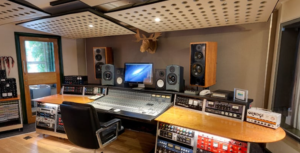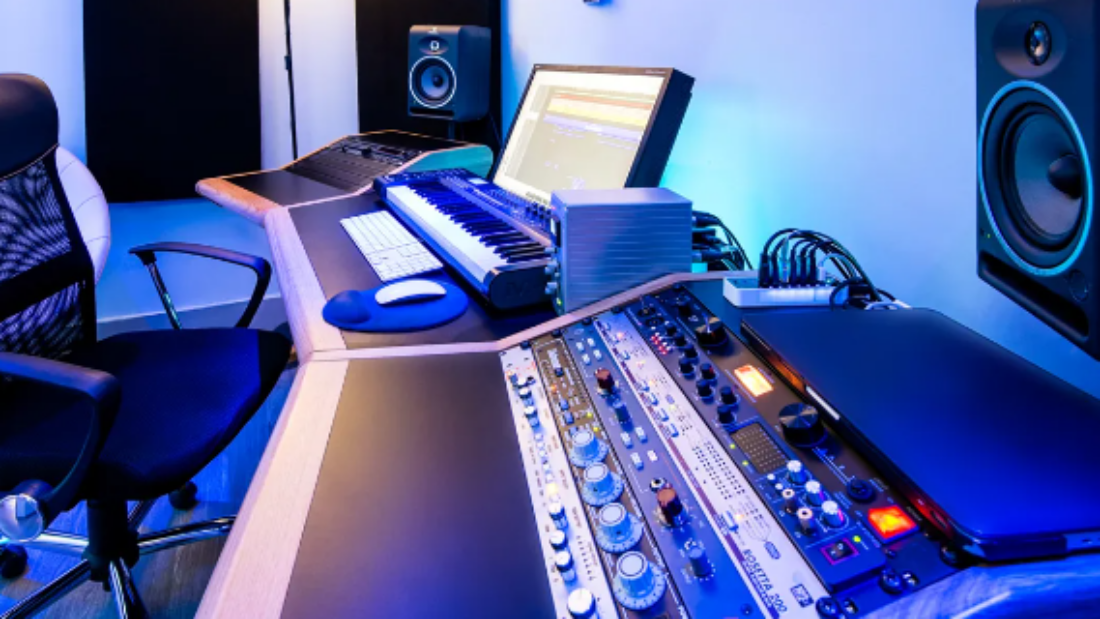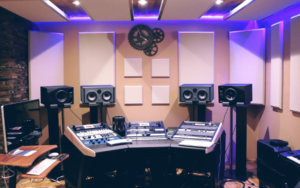In the world of music, where creativity and innovation reign supreme, a harmonious shift toward sustainability is gaining momentum. Green recording studios, at the forefront of this eco-friendly revolution, are reshaping the way music is produced. In this blog post, we embark on a journey through the lush landscapes of sustainable music production, exploring how green recording studios are hitting all the right notes in harmony with Mother Nature.

The Green Studio Movement
The green studio movement is more than just a trend; it’s a commitment to environmental responsibility. As the music industry seeks to reduce its carbon footprint, green recording studios are leading the charge. These eco-conscious havens are designed with sustainability in mind, from the ground up. Their architects prioritize energy efficiency, natural light, and acoustics while incorporating renewable materials, low-emission paints, and eco-friendly insulation.
Sustainable Studio Design
Green recording studios are architectural wonders, boasting designs that maximize energy efficiency. Passive solar heating, energy-efficient lighting, and smart HVAC systems are just a few of the features that help reduce energy consumption. Many studios even generate their own renewable energy through solar panels and wind turbines, ensuring that the music is produced with minimal impact on the planet.
Recycled Sounds: Green Equipment Choices
The commitment to sustainability extends beyond the studio’s physical design and into its equipment choices. Green recording studios carefully select audio gear and instruments that meet eco-friendly criteria. They opt for instruments made from sustainable materials, embrace refurbished equipment, and invest in energy-efficient amplifiers and processors. The result? Music that’s not only pleasing to the ear but gentle on the environment.
Waste Reduction and Recycling
Green recording studios take waste reduction seriously. They implement rigorous recycling programs and reduce single-use plastics wherever possible. Even album packaging is reconsidered, with eco-friendly options like recycled cardboard and soy-based inks taking center stage. It’s a holistic approach to reducing the environmental footprint of music production.
Soundproofing and Acoustic Innovation
Sustainability doesn’t mean compromising on sound quality. Green recording studios excel in innovative acoustic design, using eco-friendly materials for soundproofing and diffusion. Recycled denim insulation, bamboo diffusers, and reclaimed wood panels are just a few of the options that ensure impeccable sound while staying true to sustainability principles.
Carbon-Neutral Production
Recording music often involves travel and energy consumption, but green studios aim for carbon neutrality. They offset emissions through reforestation projects, investments in renewable energy, and environmentally conscious transportation choices. This commitment ensures that each musical creation has a net-zero impact on the environment.
Musical Instruments and Sustainable Sourcing
Musical instruments are the soul of music production, and green recording studios prioritize instruments sourced from sustainable materials. From guitars crafted from reclaimed wood to percussion instruments made from bamboo, these studios prove that music and environmental consciousness can harmonize beautifully.
Eco-Conscious Artists
The green studio movement isn’t limited to the studios themselves. Many artists are embracing sustainability, and making conscious choices in their music production and touring practices. From eco-friendly tour buses to green merchandise, musicians are amplifying the message of sustainability through their music and actions.
The Future of Green Recording Studios
As the green recording studio movement continues to gain momentum, its future shines brighter than ever. Sustainable music production is no longer a niche; it’s becoming an industry standard. As technology advances and sustainable practices become more accessible, we can expect an even more harmonious relationship between music and the environment.
Conclusion
In conclusion, green recording studios are composing a new melody in the music industry—one that resonates with the planet’s well-being. These eco-conscious havens are proof that music can be both artful and environmentally responsible. They’re setting the stage for a more sustainable future in the world of music production, proving that when creativity and sustainability come together, the result is truly music to our ears.
You might also be interested in:
- What is a Recording Studio?
- Beautiful Top Recording Studios Around the World
- The Best Recording Studios in the World.

